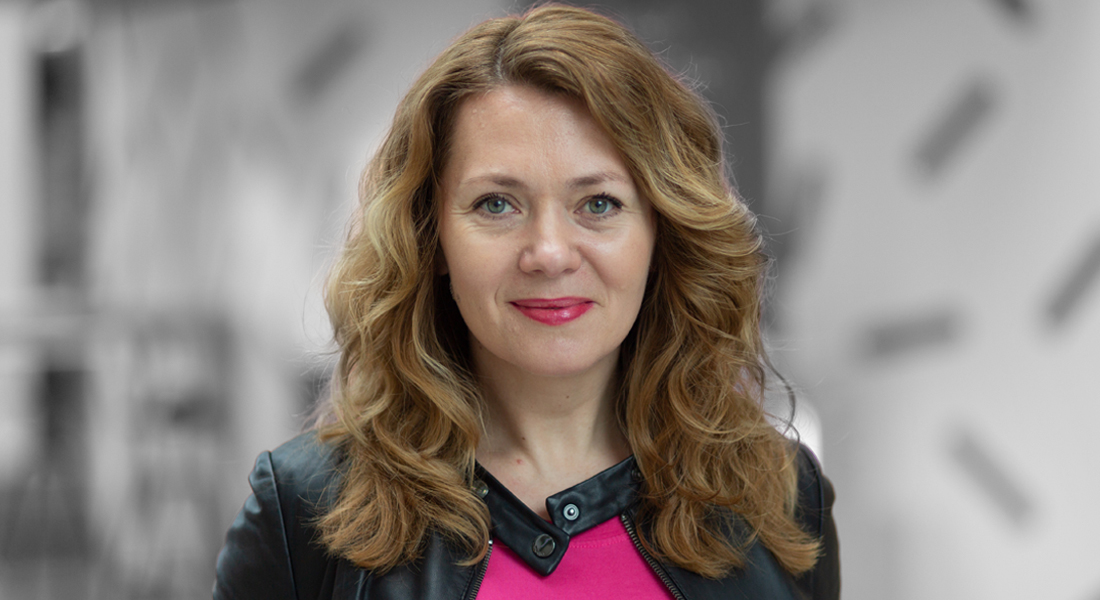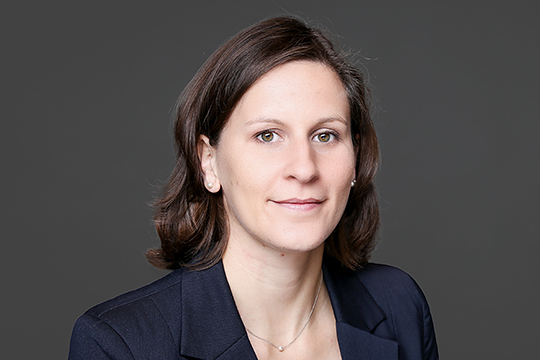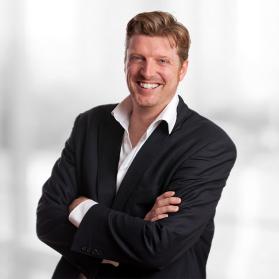Telekom MobilitySolutions, a full-service provider and wholly owned subsidiary of Deutsche Telekom, operates one of the largest fleets of company vehicles in Germany. It provides today a wide range of environmentally friendly, economical, and sustainable mobility services and is working intensively on new forms of interconnected, digital employee mobility. As part of our series “Working in the New Reality,” we spoke with managing director Dr. Olga Nevska about the corporate mobility of the future and how the global coronavirus crisis is affecting our mobility behavior, the transportation transition, and the mobility strategy of the Magenta world.
Deutsche Telekom has the second-largest corporate fleet in Germany. In your view, how is Covid-19 changing occupational mobility? What form will the “new reality” take in this respect?
The coronavirus crisis has led to a significant change in mobility behavior, and Deutsche Telekom is no exception. Working from home has increased, the number of business trips has fallen drastically, so of course the use of all means of transportation has decreased. As is well known, the biggest losers have been public transportation services, but all the sharing services have suffered as well because the fear of infection has made us feel safest in our own car or on the bike. However, I do not think that the new reality is a matter of personal transportation. The mobility transition that started long before the coronavirus appeared cannot be reversed. That is why we are sticking to our strategy “From cars to mobility.” For me, this means that we are focusing on three topics: first, on the diversification of our portfolio through electric and micro-mobility; second, on the introduction of digital services such as sharing and pooling; and third, on interconnected and demand-oriented mobility for all.
At Deutsche Telekom, you have been rethinking the issue of employee mobility for some time now, and you are also taking bold steps. The emphasis is on “shared, digital, and interconnected mobility.” How might we understand this?
Our aim is to create a form of mobility that is flexible and uses resources efficiently. Deutsche Telekom is determined to reduce its carbon dioxide emissions by 90 percent in comparison with 2017 by 2030, and mobility is one of the levers for achieving this goal. At Telekom MobilitySolutions, we have long since bid farewell to the identity of a classic fleet manager and see ourselves as a mobility provider offering a holistic range of efficient, economical, and sustainable mobility services. The portfolio ranges from classic company cars or service vehicles to sharing concepts and various types of on-demand mobility. Besides around 23,000 company and business vehicles, we operate our own car-sharing fleet, 8,000 deferred-compensation bicycles, a shuttle service for around 120,000 people a year, and e-scooters and pool bikes in the field of micro-mobility.
This certainly gives you one of the broadest ranges of products and services that can be found among German corporations. How are all these different services used? The SUV for management board members, the bicycle for the vocational trainee?
This is a good question. My vision is to provide to every employee the mobility he or she needs at any given time. For example, when I’m traveling within a city, I might need a public transportation ticket or an e-bike to get to work. Having my own car no longer makes good sense over the long term, so I use a car-sharing service whenever necessary. Flexibly coordinated options of this type are precisely what we want to provide, enabling quick and easy access to the means of transportation appropriate to every situation.
How difficult is it to convince employees who have enjoyed the privilege of a company car for years of the value of the new concepts?
That doesn't happen overnight, of course; the company car is often a fixed component of an employment contract and that can’t be changed with a snap of the fingers. And yet, it is easier than you might think. We are all aware that we urgently need to change our mobility behavior so that we improve our CO2 balance as quickly as possible. The younger generation in particular has grown up in a sharing society and the dream of having their own car has long since become irrelevant for these people. Moreover, digitalization has made possible new forms of mobility such as car sharing or pooling and other on-demand services. This will enable us to offer to our employees increasingly flexible solutions in the future.
But one thing is clear to us: the user experience must be perfect and, above all, simple! We should not require our clients to worry about how to get from A to B whereas in the past they simply sat in their cars and were guided to their destinations by the navigation system. That’s why we’re currently working on an app that makes convenient, interconnected mobility possible. Regardless of the means of transportation or the transportation provider, users will book their travel via app, individually and appropriate to their travel needs. This reduces stress for people and congestion on the roads. We want to increase employee satisfaction without taking anything away from anyone. This is our motivation for the introduction of a digital platform in 2021; mobility as a service is the guiding principle here.
About: Dr. Olga Nevska
Dr. Olga Nevska grew up in the Ukraine and came to Germany in 2004 on a scholarship granted by the German Bundestag. After working for Roland Berger, Axel Springer, and Commerzbank, the holder of a doctorate in economics and law has held various positions at Deutsche Telekom since 2009. She has been managing director of Telekom MobilitySolutions since March 2019.
What does your personal mobility mix look like, and how will it change in the future?
My mobility mix has always been really diversified – I have a job ticket, a car, and a bicycle. I didn’t buy my first car until I was 35. I grew up in Ukraine; public transportation is very well developed there and owning a car used to be extremely expensive. Even after I moved to Germany, I really liked the excellent public transportation in the big cities. It was not until I had a child and began commuting between Cologne and Bonn that I became dependent on a car. I am certain about one thing – my next car will be electric and my mobility mix will remain diversified and demand-oriented.
What means of transportation will we be using in the future? What do you think will be the most important mobility trends in the coming years?
Mobility solutions that are to be successful in the long term must adapt to the needs of people, not vice versa. And digital technologies that are completely unknown to us today will be the enablers for new concepts and procedures. For example, I see autonomous driving becoming a reality within the next ten years. The car will then become a so-called third place along with the workplace and home where we work, read, sleep, hold meetings, or meet friends. Other trends are certainly air taxis, hyperloop travel, freight transport by drone, and, of course, intermodal mobility. This will require a high degree of willingness to change and the readiness to question the familiar, allow the unfamiliar, and try out new things.
Olga, what do you love about your job?
Our CEO Tim Höttges often says: “We are only satisfied when everyone takes part." We connect people. Via our networks. But not only with our networks.” Mobility also connects and involves much more than simply overcoming a spatial distance. It enables people to be a part of the world and to participate in it and is therefore a guarantee for success, freedom, health, and growth.
Deutsche Telekom is investing a great deal in the sustainable mobility of its employees and gives me the freedom to strike out on new paths and to try out innovative solutions together with my team. This is a great responsibility, but is as well an opportunity to accelerate the achievement of our climate goals and, in doing so, to make the world a little bit more livable for my daughter.
Thank you, Olga, we wish you and your team all the best for the future.
Many thanks to Verena Vinke for her contribution to this interview.







